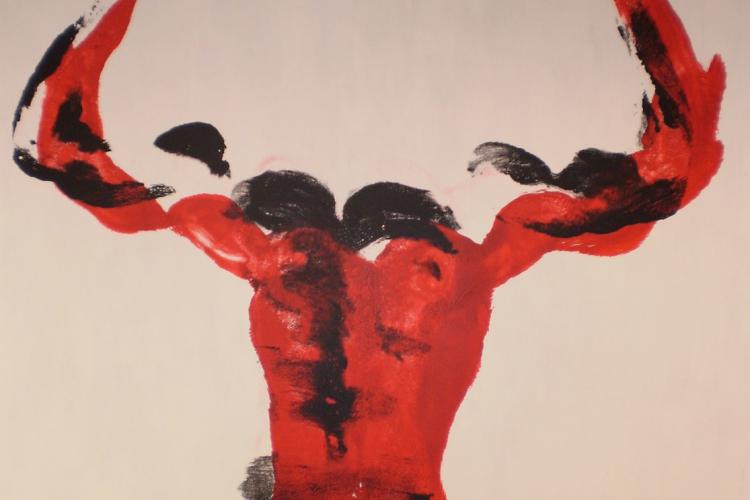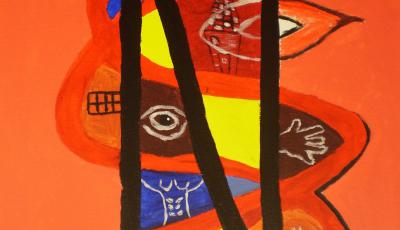Creating a Safe Space: A Woman’s Account of Working in Immigration Detention
Posted:
Time to read:
Guest post by Ana Szopa, Advocacy Coordinator with the Gatwick Detainees Welfare Group. This post is the third instalment of Border Criminologies themed week on Masculinities at the Border organised by Dan Godshaw.

As a support worker for a charity providing emotional and practical support to male detainees, I’m constantly aware of the role that I, as a young woman, inhabit. Within the two detention centres in which we work, almost 600 men are held in prison-like conditions. All but one of my colleagues, as well as many of our volunteer visitors, are women. This reflects my past experiences of the volunteer sector, in which most caring professions are dominated by women. Although my relationships with detainees are formed through a myriad of factors, I believe that my gender plays a big role.
I’m most aware of my gendered role within the centre when meeting new detainees during drop-in sessions. Many of the men I meet are much older than me; both my age and sex stand in stark contrast to the often threatening, exaggeratedly masculine identities of the detention centre guards, both male and female. The guards’ gendered authority is expressed through what I can only describe as power games. Both detainees and visitors are made to wait while the guards chat to each other and unlock doors at their leisure. I have been snapped at and told not to interfere when enquiring about how some newly released ex-detainees would be getting to the train station and made to feel like it was not my place to ask questions about the minibus. The guards are in control of all of the detainees’ and visitors’ actions, as well as our time while we’re in the centre. This is made clear through raised voices, visibly bored attitudes, or a disregard for the schedules and responsibilities of others. While I believe that some individuals assert their power simply because they can, this is also a reflection of the wider treatment of the employees within the centres. Guards are made to work extremely long hours and long working weeks before having any time off. They are often underpaid and frustrated. I have on more than one occasion been told by a guard within the centre that they cannot wait to leave and are only waiting until they find another job. Their unhappiness is then taken out on the detainees. Disempowered in terms of their working conditions, the gendered authority so often asserted by the guards can be interpreted as an attempt to regain power or status wherever possible.
I’ve witnessed many displays of anger, sadness, and desperation from detainees but none of these were directly aimed at me. The men who I work with call me regularly in order to vent their anger. I believe that I provide a valuable outlet for many emotions that would otherwise have nowhere else to go. By listening to and sharing some of their pain and stories, I try to make the men see that someone does care. However hopeless and frightening their situation, at least I (as well as their volunteer visitor if they have one) care what happens to them and want to know how they’re feeling. I have on occasion been warned by guards of certain detainees. They have implied that as a woman I should be careful, that the men I’m visiting might try to scare or hurt me. Despite this, not once have I felt unsafe around any of the men I’ve visited. While this undoubtedly has a lot to do with my surroundings―I know that in such a high-security environment there is little that could happen to me―I also like to think that it has to do with me choosing to trust the people I meet. The world of immigration is based on a culture of disbelief. By taking the people you meet at face value, a bit of humanity can be restored.
Thus, the men in detention allow me to create a safe space in which they’re able to voice their fears. For many men, this is the first time that they’ve allowed themselves to express these emotions in front of anyone. As a young woman not dressed in uniform, I’m seen as safe and comforting. As a support worker concerned with the men’s welfare, my presence within the centre is in a care giving capacity. I won’t shout back or attempt to restrain anyone. I’m simply there to listen. Of course, there remains a power imbalance between support workers and detainees, as we can book visits, speak to the staff, and leave the centre at our leisure. But unlike with the guards, detainees aren’t forced to interact with the support workers. The men can contact us if and when they like and can disclose whatever information they choose, which is then treated as strictly confidential. The relationship is thus formed and based solely around their needs.

I’ve heard many accounts of altercations between male guards and detainees. In an environment filled with uncertainty and stress, where language and meaning are easily misunderstood, tensions easily boil over. Underpaid and overworked, many guards have very short fuses so misunderstandings often turn into shouting, then shoving, then segregation. Men in detention have told me that they’ve been ‘made to feel like animals, grabbed and pushed like an animal.’ There’s little room for empathy within the exaggerated masculinity portrayed by some guards and the result is often dehumanizing. There are also many female guards within the centres. They are, however, still in uniform: there to impose rules and maintain control over the detainees. This is aided by conforming to the culture of hypermasculinity, with raised voices and brash commands designed to assert their control and power. In such an environment, it’s more difficult for guard-detainee relationships to allow for the expression of emotion, the venting of anger, or displays of fear. Various forms of protest such as hunger strikes or self-harm become some of the only ways for men to channel their anger and attempt to regain some control.
While I work inside the IRC, my role and identity enables me to operate outside dominant gendered systems of threat and control, but inside the gendered space of caring. Even as this is also true of male charity workers, the added benefit of being a young woman starkly contrasts to the oppressive role played by some guards. Although there are surely many other contributing factors, my experience has been that my gender plays a big role in the way that men in detention respond to me. In my interactions with guards, my age and gender have often left me feeling disempowered as I’m dismissed and made to feel unimportant or unequal. Conversely, this is a driving force behind my relationship with the men in detention. I’m as powerless as they are against the system but I’m on their side. I want to listen and support, and thus empower them as much as possible.
Any comments about this post? Get in touch with us! Send us an email, or post a comment here or on Facebook. You can also tweet us.
__________
How to cite this blog post (Harvard style):
Szopa, A. (2016) Creating a Safe Space: A Woman’s Account of Working in Immigration Detention. Available at: (Accessed [date]).
Share:








